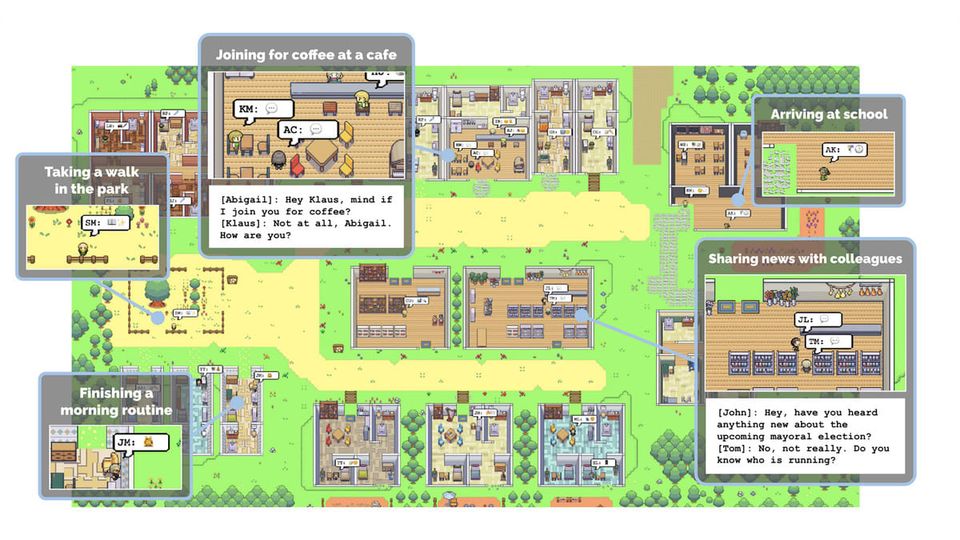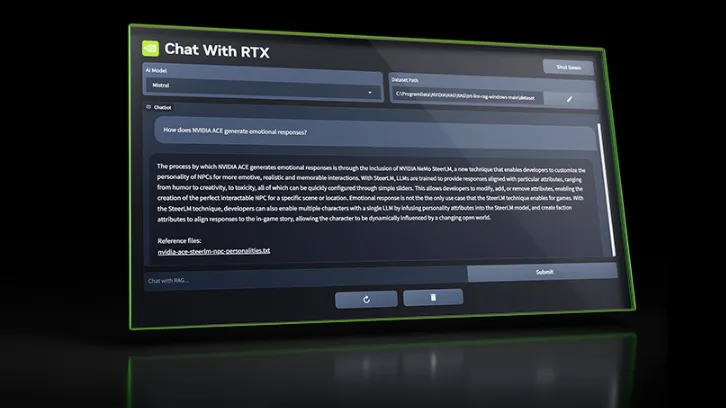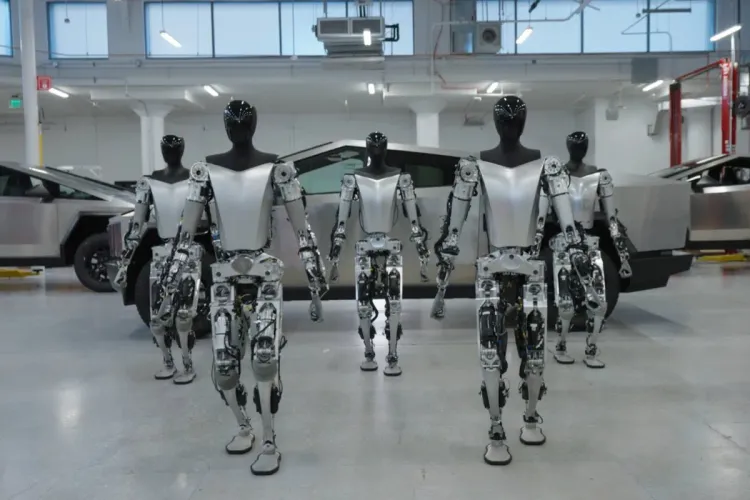Autonomous AI Bots in Smallville: A Glimpse into a World Where AI Characters Run for Mayor and Forge Their Own Paths

Researchers at Google and Stanford have created an intriguing virtual world called Smallville, where 25 autonomous AI-generated characters live and interact, making their own unique decisions. In this simulated society, these AI agents engage in complex social interactions and even pursue political ambitions, such as Sam, who chooses to run for mayor.
The generative agents in Smallville exhibit emergent behavior patterns, forming new relationships and coordinating events like Sam's mayoral campaign. This innovative approach could revolutionize non-playable characters in video games, making them more believable and interactive.

In the captivating experiment, AI-generated characters not only navigate their daily routines but also develop their own unique personalities, ambitions, and relationships. Sam, a character who has decided to run for mayor, exemplifies the remarkable autonomy these AI agents possess. This groundbreaking work pushes the boundaries of artificial intelligence, raising questions about the role of AI in future simulations and interactive environments.
Another standout character in Smallville is Klaus Mueller, who is researching the effects of gentrification in low-income communities for a research paper. These AI agents, or generative agents, display an impressive ability to retrieve information from their “memories,” perceive their environments, and determine appropriate actions. The interactions and coordination among these characters have resulted in the formation of new relationships, shared information, and even organized events like Valentine's Day parties.

The potential applications of such generative agents are vast, ranging from design tools to social computing systems and immersive environments. For instance, incorporating these AI-driven characters into video games could create more realistic and engaging non-playable characters (NPCs), leading to richer gaming experiences. Moreover, their application in virtual spaces could pave the way for more immersive and interactive metaverse environments.

However, with the increasing autonomy and human-like behavior of these AI-generated characters, ethical considerations must be addressed. The possibility of users forming parasocial relationships with these generative agents or experiencing negative consequences due to AI errors cannot be ignored. Additionally, the potential for AI-generated misinformation and malicious content must be carefully monitored and managed.
As the world of artificial intelligence continues to evolve, researchers and developers must balance the pursuit of innovative AI applications with the responsibility to ensure ethical considerations are met. The Smallville experiment is a prime example of the incredible progress made in AI technology, as well as a reminder of the challenges that lie ahead.






Member discussion